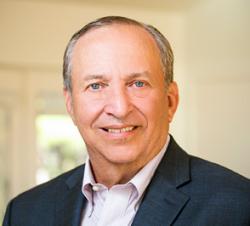

Research
BPEA | 1988 No. 2


1988, No. 2
THE NATURAL RATE HYPOTHESIS, with its corollary that demand management policies cannot affect an economy’s long-run average level of unemployment or output, has come to be widely accepted even by Keynesian economists. This view is enshrined in standard textbooks: Robert Hall and John Taylor, for example, ” stress… that macro policy cannot influence the average rate of unemployment. It can only influence the fluctuations of unemployment around the natural rate. ” In this paper we raise questions about the validity of the natural rate hypothesis and argue that demand management policies can and do affect not just the variance, but also the mean, of output and unemployment. As a way of comparing the effectiveness of different demand management policies in stabilizing national economies, we return to the much-discussed comparison of macroeconomic performance in the United States and other industrial nations before and after World War II. Previous explorations of macroeconomic performance in historical perspective have focused either on the volatility of output about trends or on the volatility of changes in output.2 But volatility is not the relevant measure if, as Keynes and the early Keynesians believed, successful macroeconomic policies fill in troughs without shaving off peaks.